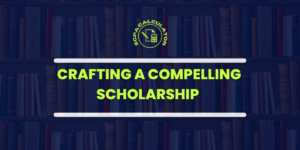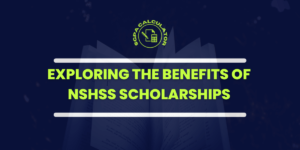Elon Musk is famous for his breakthrough efforts in space exploration, electric automobiles, and renewable energy. He is the entrepreneurial visionary and CEO of SpaceX and Tesla. Beyond his outstanding achievements in the tech sector, Musk has drawn a lot of interest with his unusual approach to education and lifelong learning. Elon Musk’s educational history, his views on education, and how his experiences might motivate and influence our own learning style will all be covered in this article.
Early Education
The South African city of Pretoria is where Elon Musk was born in 1971. In South Africa, his early education was characterised by both difficulties and opportunities. Musk went to Pretoria Boys High School after attending Waterkloof House Preparatory School. Musk first showed hints of his outstanding intelligence and business zeal throughout these formative years.
Move to Canada and Higher Education
Musk immigrated to Canada in 1989 to enrol at Queen’s University in Kingston, Ontario. He worked toward a bachelor’s degree in both economics and physics. Later on in his academic adventure, he transferred to the University of Pennsylvania in the United States. He obtained a second bachelor’s degree from the Wharton School of Business at the University of Pennsylvania, as well as a bachelor’s degree in physics from the College of Arts and Sciences. Musk’s interdisciplinary approach to problem-solving was made possible by his varied educational background.
Read Our Blog: Rishi Sunak Education
PhD Studies and Entrepreneurial Beginnings
Musk briefly attended Stanford University to pursue a Ph.D. in energy physics after earning his undergraduate degrees. But he only stayed at Stanford for two days before leaving to start his own business. The direction of Musk’s incredible career would be determined by this choice.
Musk’s Perspective on Education
Learning by Doing: Elon Musk has frequently emphasised the need for practical instruction. He thinks that gaining real-world experience and learning from mistakes is more important than just receiving a regular education in a classroom. His strategy for SpaceX and Tesla, where he and his teams have overcome difficult engineering difficulties through trial and error, is demonstrative of this attitude.
Interdisciplinary Approach: Musk’s training in physics and economics has been crucial to his capacity to tackle complex problems. He supports an all-encompassing, interdisciplinary approach to education since it prepares students to handle challenging real-world issues.
Lifelong Learning: Musk is a zealous supporter of continuing education. He exhorts people to continually seek out new information and keep up with the most recent advancements in their specialised professions. His involvement in several ground-breaking industries at once demonstrates his own dedication to learning.
Impact of Musk’s Approach
The domains of technology and entrepreneurship have been significantly impacted by Elon Musk’s approach to education and learning. SpaceX, which was established in 2002, has revolutionised the space sector with its reusable rockets and bold plans for extraterrestrial exploration. Similar to how Tesla transformed the auto sector with its electric cars and clean energy technologies.
Furthermore, a new generation of innovators has been motivated by Musk’s willingness to share knowledge and ideas. His decision to open-source SpaceX’s space exploration technologies and the patents for Tesla’s electric vehicles has encouraged cooperation and progress in both fields.
Lessons for Aspiring Innovators
Several important lessons can be learned from Elon Musk’s school experience by aspiring innovators and lifelong learners.
Don’t Be Bound by Tradition: Musk rejected conventional wisdom by leaving Stanford to pursue entrepreneurship. It serves as a reminder that the most creative pathways occasionally call for deviating from the norm.
Accept Failure: Throughout his career, Musk has experienced a number of setbacks, including rocket explosions and production issues. He sees these disappointments as chances for growth and development, nevertheless. A crucial component of his success is accepting failure and learning from it.
Follow Your Passions: Musk’s businesses, including SpaceX and Tesla, are motivated by his love of space travel and environmentally friendly transportation. Finding your passions can help you produce work that is more meaningful and influential.
Keep Learning: Elon Musk’s dedication to lifelong learning and exploration is proof of the power of curiosity. He reads widely and seeks information in many different subjects, which enables him to see connections that others might overlook.
Cooperate and Disseminate: The advancement of Musk’s industries has been accelerated by his readiness to cooperate and disseminate the innovations of his company to the world. Breakthroughs that benefit society as a whole can be produced through collaboration and open innovation.
Conclusion
Elon Musk’s educational background and method of instruction are both outlandish and inspirational. His rise to prominence as one of the most significant tech entrepreneurs in the world from his native South Africa emphasises the value of hands-on experience, interdisciplinary knowledge, and a tireless pursuit of one’s passions. Musk’s experiences offer insightful lessons that aspiring innovators and lifelong learners can apply to their own academic achievements. Musk’s example serves as a timely reminder that despite the world’s rapid technological breakthroughs, we can all contribute to a better future by being curious, persistent, and committed to learning.





